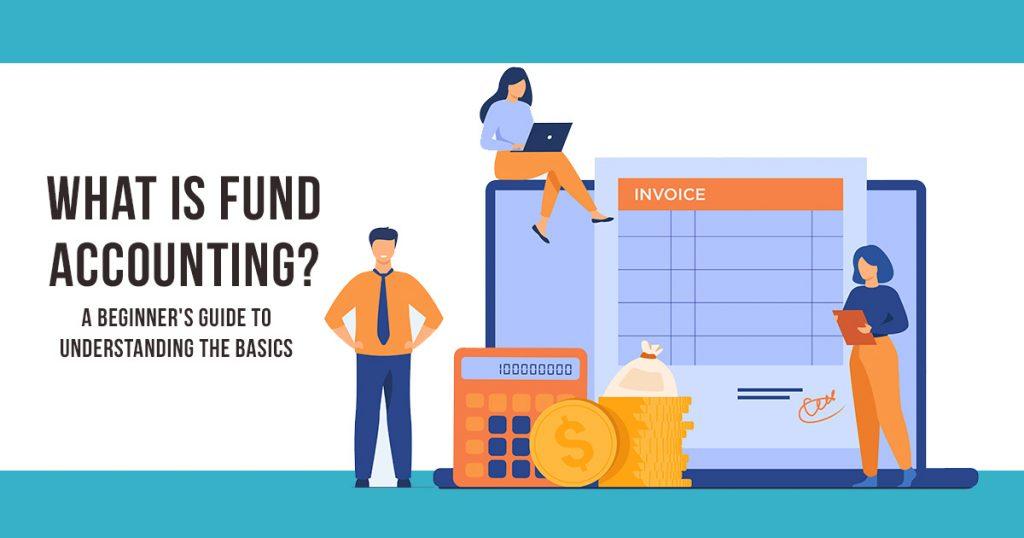Accounting is one of the most sought-after careers, playing a crucial role in almost every industry. It’s essential for businesses to keep their finances in check, and that’s where accountants come in. With the demand for accountants and auditors expected to rise by 6% from 2023 to 2033, there’s a promising future for those in the field. As businesses grow, accountants have the chance to specialize in areas tailored to specific needs. One such specialization is fund accounting, which is perfect for non-profits and government agencies that focus on accountability rather than profit.
What is Fund Accounting?
Fund accounting is a type of accounting used mainly by nonprofits, government bodies, and schools. Unlike regular accounting, which looks at profits and losses, fund accounting focuses on how money is allocated and used. The main goal is to ensure that funds are spent according to specific rules or donor instructions. This helps organizations show they are using money as intended, which builds trust with those who provide the funds.
What makes fund accounting different is how it separates money into specific categories, or funds. Each fund has its own accounts to track how money is spent. This setup helps organizations make sure they are following the rules for each fund. Unlike other accounting jobs, fund accounting deals with many funds at once, each with its own guidelines.
The Role of Fund Accountants
Fund accountants are the specialists who handle this type of accounting. Their main job is to keep track of financial activities for each fund. They have to make sure money is used according to the rules for each fund and prepare reports that show how funds are spent. These reports must meet both internal and external standards.
Fund accountants help maintain an organization’s financial health by setting up good financial practices, doing regular checks, and giving advice on financial planning. They make sure that funds are available and used wisely to support the organization’s goals. Their skills in dealing with fund accounting make them essential for organizations that need to show financial responsibility and transparency.
How Fund Accounting Works
Fund accounting can seem complex, but here’s a simple breakdown of how it operates and why it’s important to be strategic and well-informed:
Separation of Funds
Fund accounting involves dividing money into different funds, each with its own accounts. This helps organizations manage finances based on specific purposes or rules. For example, a nonprofit might have separate funds for different projects.
Independent Management
Each fund is managed on its own to ensure money is spent only on its designated activities. This means keeping a close eye on budgets and making sure each fund’s spending aligns with its purpose.
Detailed Record-Keeping
Every transaction related to a fund is carefully recorded. This means tracking all income and expenses to ensure accuracy. Regular reports are created to show how funds are being used.
Compliance and Trust
By maintaining detailed records and reports, organizations can comply with legal and donor requirements. This transparency helps build trust with stakeholders, showing that funds are used responsibly.
Need for Strong Skills
Because of its complexity, fund accounting requires strong learning and strategic skills. Fund accountants must understand the specific rules for each fund and plan effectively to use financial resources wisely.
Starting Your Journey in Fund Accounting
If you want to become a fund accountant, it’s important to start with the basics. Here’s a guide to help you understand fund accounting:
Purpose of Fund Accounting
Fund accounting focuses on tracking financial resources meant for specific uses, unlike regular accounting, which focuses on profits. It’s mainly used by nonprofits, government agencies, and schools.
Key Concepts to Know
- Funds: These are separate accounts for different projects or activities. Each fund is managed independently to ensure money is used correctly.
- Budgeting: This involves planning how each fund’s money will be spent in line with its purpose.
- Reporting: Fund accountants create detailed reports to show how funds are being used, often to satisfy legal or donor requirements.
Core Principles
- Transparency: Everything must be clearly documented to show how funds are used.
- Compliance: Following rules and regulations is crucial to maintaining trust.
- Accountability: Ensuring funds are spent as intended is a major responsibility.
Using Tools
Fund accountants often use special software to manage funds effectively. Learning these tools can simplify your work.
Analytical Skills
Being able to understand and analyze financial data is important. You’ll need to look at reports and make suggestions to help the organization financially.
Finding a Career as a Fund Accountant
Starting a career as a fund accountant can be a great choice, especially if you enjoy working with nonprofit organizations. To find a job in this field, look for openings at nonprofits, government bodies, and schools, as they often need fund accountants. Connecting with professionals in these areas and attending industry events can also help you discover job opportunities.
Why choose fund accounting? As a fund accountant, you help ensure that money is used properly to support the mission of the organizations you work with. This makes it a fulfilling career for those who want to make a positive impact.
Fund accounting combines financial management with strategic planning, giving you valuable skills that are in demand in many sectors. This means you can enjoy a stable career with chances for growth and advancement.
If you want a job where you can use your financial skills to help make a difference, becoming a fund accountant could be a perfect fit for you.
